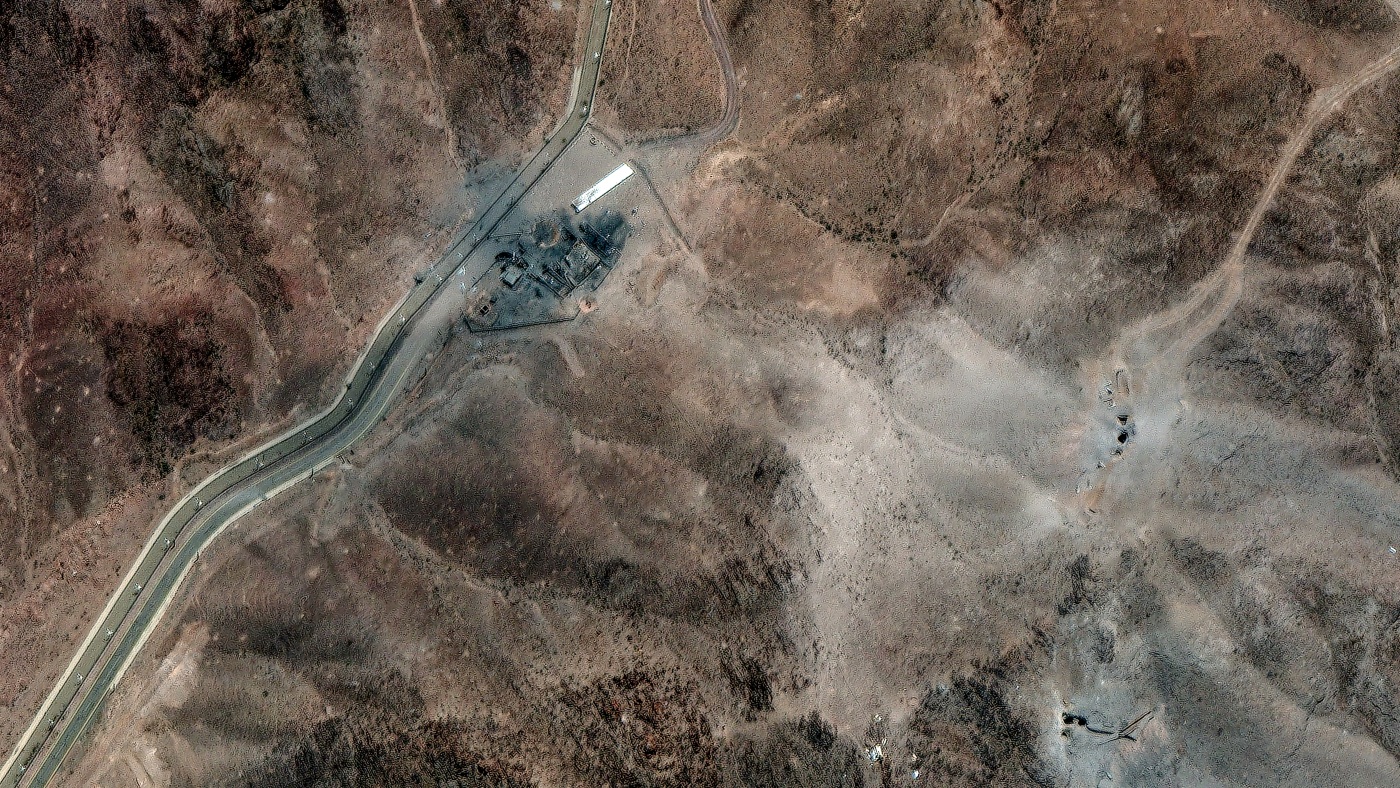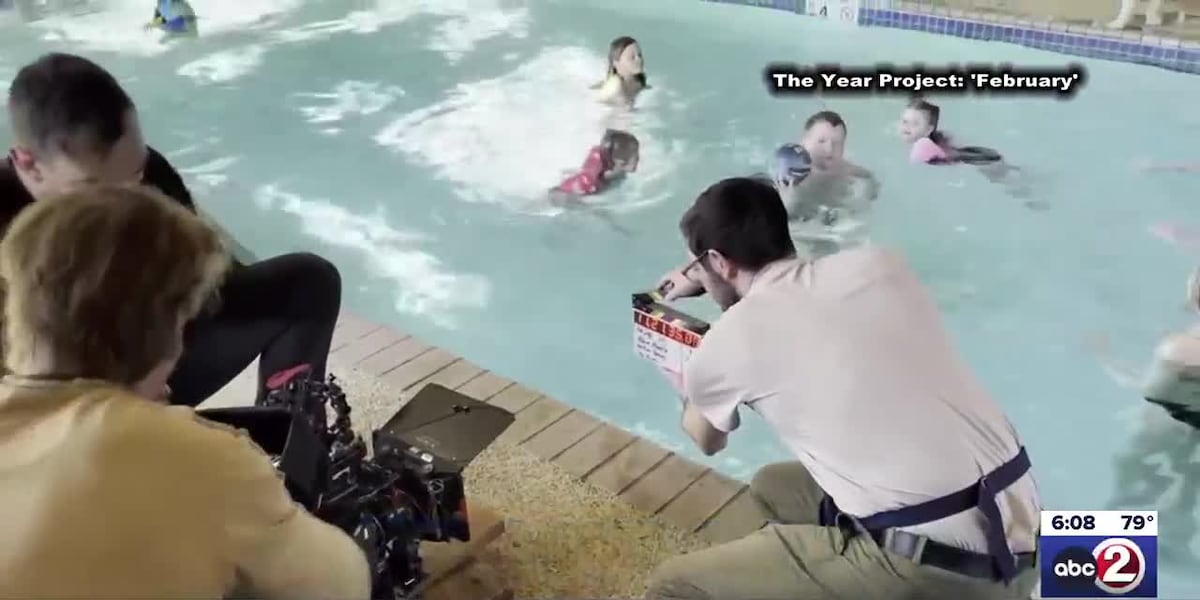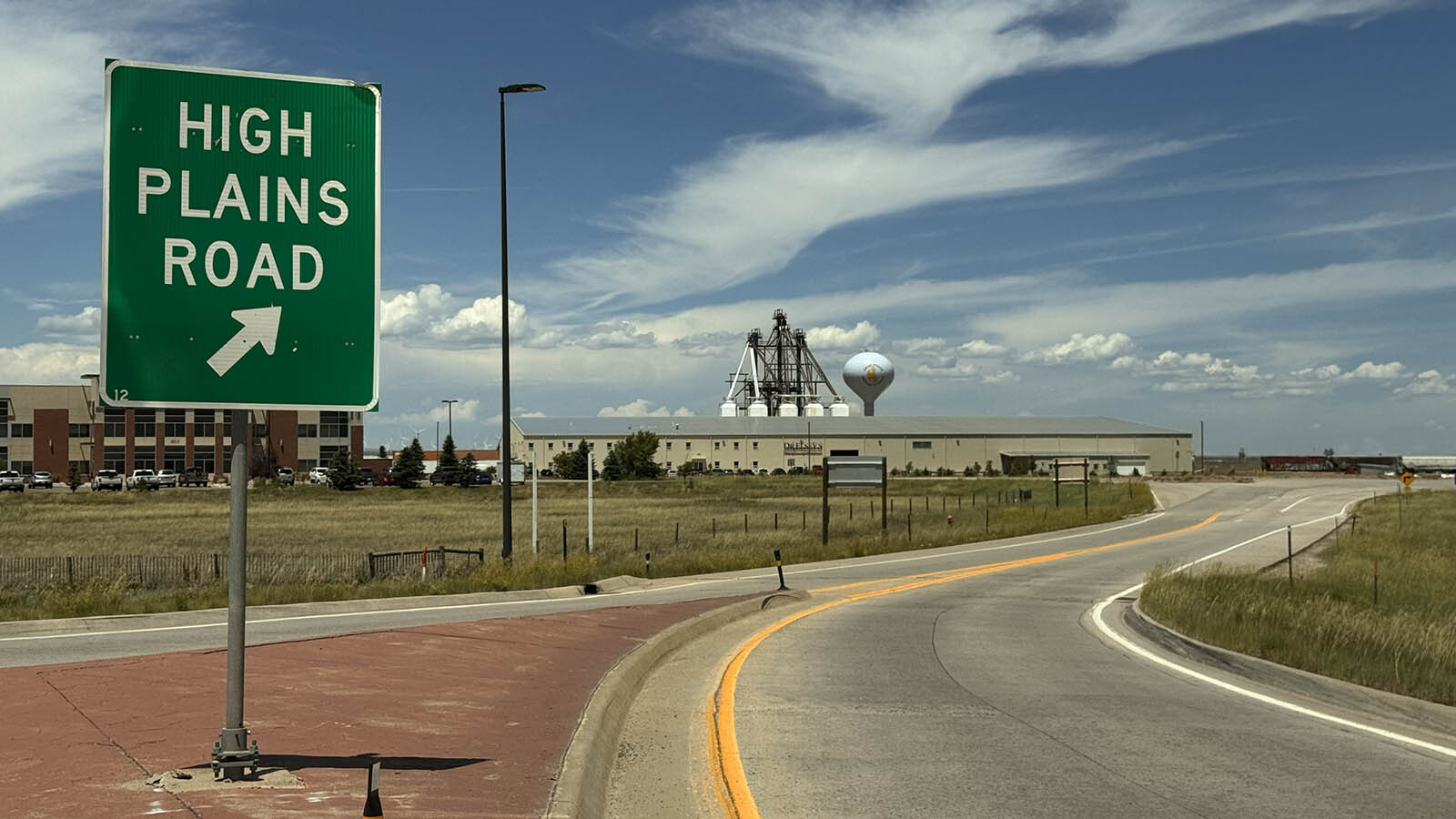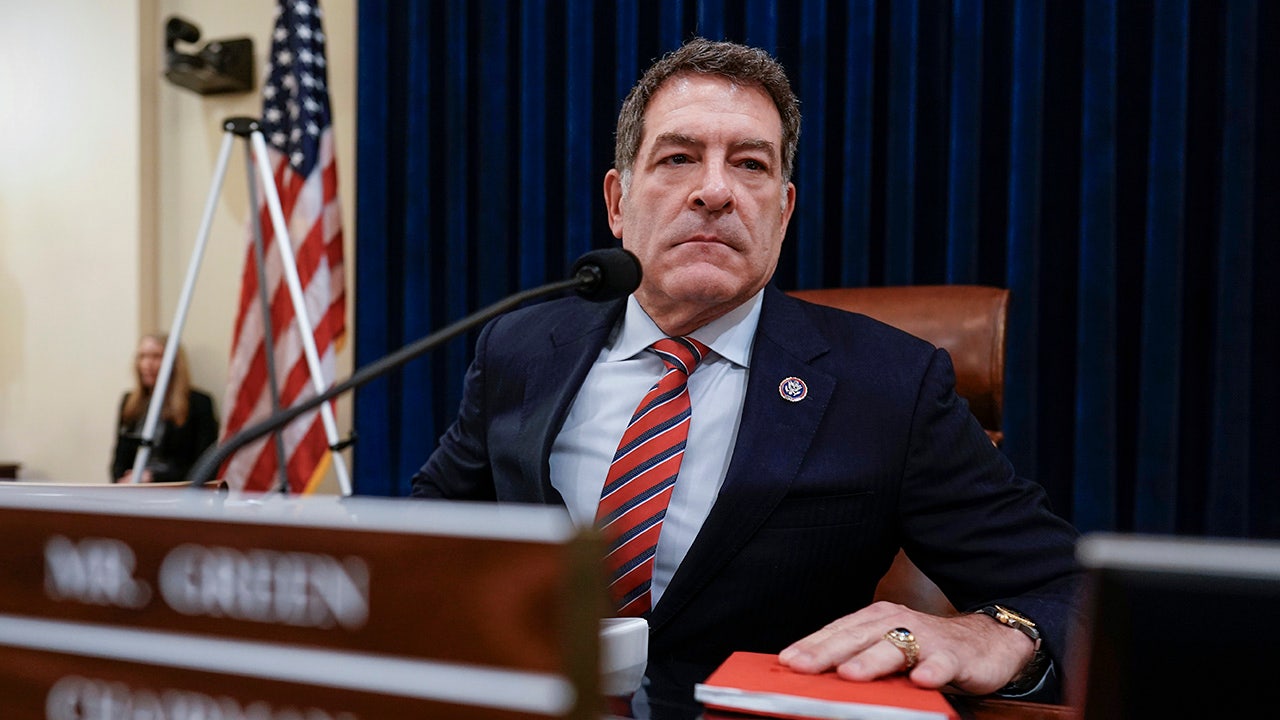Alaska
Bursting ice dam in Alaska highlights risks of glacial flooding around the globe

Mark Sabbatini/AP
JUNEAU, Alaska (AP) — The gray, two-story home with white trim toppled and slid, crashing into the river below as rushing waters carried off a bobbing chunk of its roof. Next door, a condo building teetered on the edge of the bank, its foundation already having fallen away as erosion undercut it.
The destruction came over the weekend as a glacial dam burst in Alaska’s capital, swelling the levels of the Mendenhall River to an unprecedented degree. The bursting of such snow-and-ice dams is a phenomenon called a jökuhlaup, and while it’s relatively little-known in the U.S., researchers say such glacial floods could threaten about 15 million people around the world.
“We sat down there and were just watching it, and all of a sudden trees started to fall in,” Amanda Arra, whose house continued hanging precariously over the river bank Monday, told the Juneau Empire. “And that’s when I started to get concerned. Tree after tree after tree.”
Advertisement
Article continues below this ad
The flooding in Juneau came from a side basin of the awe-inspiring Mendenhall Glacier, which acts as a dam for the rain and melted snow that collect in the basin during the spring and summer. Eventually, the water gushed out from under the glacier and into Mendenhall Lake, from which it flowed down the Mendenhall River.
Water released from the basin has caused sporadic flooding since 2011. But typically, the water releases more slowly, over a number of days, said Eran Hood, a University of Alaska Southeast professor of environmental science.
Saturday’s event was astonishing because the water gushed so quickly, raising the river’s flows to about 1 1/2 times the highest previously recorded — so much that it washed away sensors that researchers had placed to study the glacial outburst phenomenon.
“The flows were just way beyond what anything in the river could withstand,” Hood said.
Advertisement
Article continues below this ad
Two homes were completely lost and a third partially so, Robert Barr, Juneau’s deputy city manager, said Monday. There were no reports of injuries or fatalities.
Eight buildings, including those that fell into the water, have been condemned, but some might be able to be salvaged by substantial repairs or bank stabilization, he said. Others suffered lesser damage.
While climate change is melting the Mendenhall and other glaciers around the world, its relationship to such floods is complicated, scientists say.
The basin where the rain and meltwater collect was formerly covered by the Suicide Glacier, which used to flow into the Mendenhall Glacier, contributing ice to it. But the Suicide Glacier has retreated as the climate warms, leaving a lake in the basin dammed by the Mendenhall.
Advertisement
Article continues below this ad
While that part can be linked to climate change, the unpredictable ways that those waters can burst through the ice dams and create floods downstream is not, they said.
“Climate change caused the phenomenon, but not the individual floods,” Hood said.
The variability in the timing and volume of such floods makes it hard to prepare for them, said Celeste Labedz, an environmental seismologist at the University of Calgary.
More than half of the people at risk from glacial outburst floods are in just four countries — India, Pakistan, Peru and China, according to a study published this year in Nature Communications.
Advertisement
Article continues below this ad
One of the more devastating such events killed up to 6,000 people in Peru in 1941. A 2020 glacial lake outburst flood in British Columbia, Canada, caused a surge of water about 330 feet (100 meters) high, but no one was hurt.
Because the ground along the Mendenhall River is largely made up of loose glacial deposits, it’s especially susceptible to erosion, Hood said. The damage could have been much worse if the flood coincided with heavy rains, he said.
Chris and Bob Winter built their house about 50 feet (15.2 meters) off the Mendenhall River in 1981. It flooded for the first time in 2014, an event that prompted them to raise their house 3 feet. It flooded again on Saturday with about 3 inches of standing water, enough to soak the carpets, subflooring and drywall.
“You just got to rip it all out,” Chris Winter said. “I just don’t know what’s going to happen, but we can’t live in our house right now.”
Advertisement
Article continues below this ad
She said her biggest concern is that they are both in their mid-70s and will probably have to move south at some point.
“We raised our family, and they’re gone and nobody’s in Juneau,” she said. “And I don’t know that we’ll be able to sell it.”
Thiessen reported from Anchorage. Associated Press writer Gene Johnson in Seattle and researcher Jennifer Farrar in New York contributed to this report.

Alaska
‘It’s all been beautiful out here’: Kentucky Legion baseball team enjoys an extended stay in Alaska
Of the two Lower 48 teams competing in the Alaska 529 Midseason Classic in Anchorage this weekend, the one that had the farthest to travel was the Madisonville Post 8 Rangers from Kentucky.
Last September, head coach/manager Jamie Mills proposed the idea of making the trek from Madisonville, Kentucky, to Alaska to the parents of the American Legion squad before getting his players’ hopes up too high.
“I didn’t know who would be on board because it is a long trip,” he said. “I sent it out in our group messaging and immediately I got back like, six ‘Let’s do its,’ so here we are.”
After eight months of planning and fundraising, they were able to make it happen.
“I love the weather,” Mills said. “I could live like this but the darkness in the wintertime, I think that would freak me out a little bit.”
One of the biggest adjustments he and his players had to make was finding a way to deal with the nearly endless daylight that comes with Alaska summers.
“The guys have been blacking out the curtains and making sure it’s total darkness so we can go to sleep because it doesn’t get totally dark outside here,” Mills said.
In preparation for the trip, he had been tracking the forecast in different parts of Alaska for the last month. The members of the traveling party were limited to one duffel bag and a backpack, so they wanted to ensure they knew what kind of clothes to pack.
The Rangers have been enjoying and exploring the 49th state as much as they can when not competing for tournament titles.
“We’ve been playing a lot of baseball, so it’s been kind of difficult, because it’s kind of hard to go anywhere,” Mills said.
The first leg of the journey started more than a week ago in Kenai at the Lance Coz Wood Bat tournament. The team won the tourney, and it was also the stop where they went on the most excursions.
“We went to Whittier one day and saw that place, and we did a lot of sightseeing,” Mills said. “We haven’t done a whole lot of stuff (in Anchorage). We went to some parks and a couple of guys went to go see a glacier with their parents.”
Since their Saturday game against Dimond wasn’t scheduled until 7:30 p.m., they were able to get some fishing in.
This trip was the first to Alaska for every team member, and for many of them, it was also the first time they’d ever been on a plane.
“We were a little nervous about it and had Dramamine prepared and packed just in case anybody got sick,” Mills said. “Of the 18 guys, there are probably about 10 of them that this was their first time flying.”
One of those nearly dozen first-time flyers and visitors to Alaska was outfielder and left-handed pitcher Jax Lee, who just finished up his senior season and is set to play baseball in college.
“It was actually pretty cool,” he said. “I was a little nervous but once we got on the plane and took off, I was just fine.”
Prior to this trip, the farthest Lee had ever been from Kentucky was Florida — a nine- to 11-hour drive from where they live.
“The weather has been great and nature, it’s all been beautiful out here,” Lee said. “I kind of expected it, and I brought warm clothes and was just super excited to get out here.”
He has enjoyed activities such as visiting Kincaid Park, going fishing and exploring the wilderness.
Impressions of Alaska competition
Mills wasn’t sure what to expect regarding the quality of baseball talent that Alaska would have to offer when he was planning the trip. After seeing what it’s like for the past week-plus, he admitted to being thoroughly impressed.
“A lot of these teams are a lot younger than we are but they are very well-instructed,” Mills said. “They know baseball, the defense has been phenomenal, they all hit the ball.”
His team started off slow in its Friday afternoon matchup with reigning state American Legion champion Service at Mulcahy Stadium but were able to stage a late comeback, winning 8-4.
Since the Rangers have been in Alaska for over a week, Mills said jet lag isn’t a good excuse for not being at their best earlier in the game.
“That seems to be our problem in this tournament, and I don’t know if it’s because of a lack of sleep at night or what, but it’s taken us a long time to wake up and get the bats going,” he said. “We’ve scored a lot of runs and we’ve had a couple of games where we haven’t been able to get the bats going.”
Mills had to “light a little fire” under his team about halfway through the game because he believed their defense was “lackluster and the pitching wasn’t there.”
“We kind of struggled through pitching but in the endgame, these guys showed up in one inning to win the ballgame and I’m super proud of them,” he said.
The spark they were desperately in need of came from Lee in the bottom of the sixth inning.
With the bases loaded and no outs, he recorded a bases-clearing double to cut Service’s lead to one run. He was then brought in for the game-tying run on an RBI double from teammate Brooks Lynam.
“I was expecting a curveball because on my first at-bat, I struck out to it looking down,” Lee said. “I was just hoping to take it up the middle and do my job for the team.”
The Rangers’ bats stayed hot as they scored four more runs before the frame was over.
“The pitcher was struggling to throw strikes and we just took over, finding gaps and hitting the ball,” Lee said.
Most of the players on the team are 17 and 18 years old with a dozen heading off to college to play ball this fall.
Lee is one of the leaders who Mills depends on, and he believes “sometimes it takes those guys to motivate the other guys.”
“It’s pretty fun just being with the team, enjoying the times together and just having fun,” Lee said.
Alaska
Alaska Sports Scoreboard: June 28, 2025
High School
Legion AA Baseball
Monday
Ketchikan 5, East 2
Central Point 7, Fairbanks 0
Palmer 4, Wasilla 1
Juneau 13, West 3
Dimond 10, Chugiak 4
Tuesday
Central Point 6, Ketchikan 2
Madisonville (KY) 10, Palmer 8
Wasilla 6, Madisonville (KY) 1
Klamath Falls (OR) 12, Palmer 1
Klamath Falls (OR) 10, Wasilla 0
Service 2, Juneau 1
Wednesday
Madisonville (KY) 16, Klamath Falls (OR) 4
Klamath Falls (OR) 7, Madisonville (KY) 1
Central Point (OR) 10, Fairbanks 0
Central Point (OR) 4, Fairbanks 1
East 3, Ketchikan 0
Thursday
Klamath Falls (OR) 14, South 2
Chugiak 11, South 4
Service 11, Dimond 0
West 6, Madisonville (KY) 6 (tie)
Friday
West 9, Dimond 5
Madisonville (KY) 8, Service 4
Kenai 10, South 6
Klamath Falls (OR) 10, Chugiak 5
Saturday
Kenai 5, Chugiak 5 (tie)
Fairbanks 9, East 6
Klamath Falls (OR) 4, Kenai 4 (tie)
Service vs. West (late)
Dimond vs. Madisonville (KY) v. Dimond (late)
• • •
Alaska Baseball League
Sunday
Chugiak-Eagle River Chinooks 12, Mat-Su Miners 9
Monday
Anchorage Glacier Pilots 9, Chugiak-Eagle River Chinooks 6
Mat-Su Miners 11, Anchorage Bucs 9
Tuesday
Chugiak-Eagle River Chinooks 11, Anchorage Bucs 2
Mat-Su Miners 5, Anchorage Glacier Pilots 0
Wednesday
Chugiak-Eagle River Chinooks 10, Mat-Su Miners 8
Anchorage Glacier Pilots 5, Anchorage Bucs 2
Thursday
Anchorage Bucs 14, Chugiak-Eagle River Chinooks 3
Mat-Su Miners 13, Anchorage Glacier Pilots 3
Friday
Mat-Su Miners 5, Anchorage Bucs 3
Saturday
Anchorage Glacier Pilots v. Chugiak-Eagle River Chinooks (late)
• • •
2025 Rainbow Run
Women
1. Shira Ellenson, Franklin, VA 23:16; 2. Jennifer McGrath, Anchorage, AK 24:47; 3. Kristin Riall, Nome, 26:08; 4. Rosemary Reynolds, Anchorage, AK 26:29; 5. Emma Korosei, Anchorage, AK 26:40; 6. Frances Esson, Houston, TX 27:39; 7. Marci Cartier, Anchorage, AK 28:15; 8. Jenni Grunblatt, Anchorage, AK 28:55; 9. Jen Novobilski, Anchorage, AK 29:07; 10. Allison Lamb, Anchorage, AK 29:39; 11. Michelle Cox, Anchorage, AK 29:53; 12. Kayla Scherf, Anchorage, AK 30:00; 13. Elayna Tunney, Anchorage, AK 30:01; 14. Annika Gagnon, Palmer, AK 30:01; 15. Jaime Bronga, Anchorage, AK 30:13; 16. Kira Fagerstrom, Wasilla, AK 30:38; 17. Mari Rueter, Anchorage, AK 30:40; 18. Janet Johnston, Anchorage, AK 30:46; 19. Elizabeth Sharpe, Anchorage, AK 31:14; 20. Therine Gardner, Anchoragege, AK 31:14
Men
1. Daniel Harren, Anchorage, AK 19:51; 2. Ira Slomski-Pritz, Anchorage, AK 23:12; 3. Dan Poulson, Anchorage, AK 24:12; 4. Loren Holmes, Anchorage, AK 25:00; 5. Thomas Mack, Anchorage, AK 25:27; 6. JJ Jackson, Anchorage, AK 27:09; 7. Matthew Jenkins, Anchorage, AK 27:09; 8. Peter VanDyne, Anchorage, AK 27:12; 9. Chris Sharpe, Anchorage, AK 27:14; 10. Burke Anderson, Anchorage, AK 27:25; 11. Ryan Peltier, Anchorage, AK 27:25; 12. Brian Mulligan, Anchorage, AK 27:38; 13. Russell Nelson, Anchorage, AK 27:42; 14. Matthew Roberts, Feura Bush, NY 27:45; 15. Mark Meinen, Anchorage, AK 28:15; 16. Connor Priest, Anchorage, AK 28:38; 17. Abraham Hartsell, Minneapolis, MN 28:53; 18. Tanner Randall, Anchorage, AK 28:59; 19. Bryan Mulkern, Anchorage, AK 29:12; 20. Nicholas Phillips, Anchorage, AK 29:15
• • •
2025 HRT K9 – We Got Your 6K
Women’s 6K
1. Shantel Wiley, Soldotna, AK 38:52; 2. Olivia Acosta, Chugiak, AK 39:12; 3. Anthea Acosta, Chugiak, AK 39:12; 4. Paige Mason, Anchorage, AK 42:02; 5. Karen Anderson, Wasilla, AK 42:07; 6. Kayla Gum, Palmer, AK 44:59; 7. Nicole Ratchford, Jber, AK 46:12; 8. Andilea Weaver, Palmer, AK 47:02; 9. Katarina Grover, Wasilla, AK 47:30; 10. Cassie Sheridan, Girdwood, AK 47:46; 11. Samantha Ackerly, Palmer, AK 51:00; 12. Sherrille Van Horn, Wasilla, AK 51:17; 13. Cheryl Jones, Wasilla, AK 51:24; 14. Georgia Pfile, Wasilla, AK 54:03; 15. Ali Spealman, Wasilla, AK 54:03; 16. Charla Lee, Wasilla, AK 56:01; 17. Amanda Weidman, Wasilla, AK 58:45; 18. Sabrina Partridge, Anchorage, AK 1:00:50; 19. Emily Bartholomew, Wasilla, AK 1:02:54; 20. Marie Lebron, JBER, Anchorage, AK 1:02:54; 21. Carolyn Ballain, Big Lake, AK 1:02:54; 22. Holly Payne, Anchorage, AK 1:02:57; 23. Angela Parreira, Palmer, AK 1:03:38; 24. Denali Partridge, Anchorage, AK 1:04:23; 25. Kendyl Ligman, Wasilla, AK 1:04:28; 26. Renee Ligman, Wasilla, AK 1:04:28; 27. Melissa Anderson, Anchorage, AK 1:06:07; 28. Alyssa Simmons, Anchorage, AK 1:10:53; 29. Angela Simmons, Anchorage, AK 1:13:33
Men’s 6K
1. Maximus Tagle-Martinez, Jber, AK 27:20; 2. Gavin Hanks, Eagle River, AK 27:50; 3. Nathan Smith, Eagle River, AK 27:52; 4. Brian Delort, Wasilla, AK 28:05; 5. Eoin Youngblood, Palmer, AK 29:03; 6. Kody Worley, Wasilla, AK 33:25; 7. Connor Doneghy, Palmer, AK 38:15; 8. Brandon Martin, Anchorage, AK 42:01; 9. Joel Currier, Palmer, AK 44:34; 10. Charles Simmons, Anchorage, AK 52:07; 11. Elric Weidman, Wasilla, AK 58:30; 12. Joseph Parreira, Palmer, AK 1:03:38; 13. Walter Weidman, Wasilla, AK 1:07:21
Women’s 1 Mile
1. Diana Smith, Eagle River, AK 08:57; 2. Meghan Smith, Eagle River, AK 09:51; 3. Ruth Smith, Eagle River, AK 11:28; 4. Laina Worley, Wasilla, AK 12:05; 5. Kalina Mahlev, Palmer, AK 14:48; 6. Sara Mahlev, Palmer, AK 15:32; 7. Elsa Benton, Palmer, AK 20:41; 8. Nora Benton, Palmer, AK 21:03; 9. Jamie Benton, Palmer, AK 21:05
Men’s 1 Mile
1. Abel Worley, Wasilla, AK 08:30; 2. Eli Barr, Wasilla, AK 08:30; 3. Thaddeus Benton, Palmer, AK 20:41
Alaska
In words and photos, rural Alaska residents reflect on their village’s sustainable practices

GALENA, Alaska (AP) — In rural central Alaska, a village is in the midst of a clean energy transformation that locals say will boost savings, build resilience and provide jobs. Galena wants to curb its reliance on expensive, imported diesel that when burned is one of the largest contributors of planet-warming emissions. Nearly 10 years ago, the village started harvesting trees to fuel a biomass plant to heat its bustling boarding school, offsetting about 100,000 gallons (about 380,000 liters) of diesel annually. The local Louden Tribe is encouraging people to collect floating logs from the Yukon River that can be used for firewood and siding for the sustainable homes they’re building for members. And soon a 1.5-megawatt solar farm will allow the city to turn off its diesel engines and run on 100% clean, renewable energy on sunny summer days, with excess power stored in a battery for later use. That will save another 100,000 gallons annually. The Associated Press talked to residents about their village’s sustainable and renewable energy projects. Here are some of their reflections: Tim Kalke, 46, general manager at Sustainable Energy for Galena Alaska “We’re just ensuring that our critical infrastructure has redundancy and protection built into it, so that every time there’s a power outage, it doesn’t turn into tens of thousands of dollars in repairs in its wake.” Jade Thurmond, 20, a Galena resident working on the solar farm “I’m really excited for when we are using it and how we’ll reduce our diesel usage. I think that would be pretty fun to see and to hear about in the future, and see what comes along.” Jake Pogrebinsky, 54, a sawmill operator for Louden Tribe and driftwood collector “Instead of having to make money to pay for barge freight or to buy materials, you are spending your time out on the river. For a young person, as a lesson, as a skill-building activity, it cannot possibly be compared to.” Brad Scotton, 54, a Galena city council member “What (the biomass plant) has done is stabilize (costs), and it’s created a local workforce and a job base that we never used to have. So it’s keeping the money that used to go outside within the community and providing pretty meaningful jobs for people.” Will Kramer, 29, an applied mechanics instructor at Galena Interior Learning Academy “We are just at the whim of whatever somebody else that wants to make all the money off of us is saying and doing. And being able to install and integrate these systems in these communities, it kind of gives the freedom back to the communities.” Phil Koontz, 74 , a retired environmental engineer for the Louden Tribe “It would be very hard to live here without outside resources. I see fuel as probably the main outside resource that we use. It provides most of the electricity, it provides most of the transportation, it provides most of the heat. I don’t know what we’re going to do without those things. One of the solutions I see is efficiency, reducing the need for energy to produce the same result, better insulated houses, better vehicles, better energy sources.” Aaren Sommer, 19, a Galena resident helping install the solar array The array is “going to reduce the diesel usage a whole bunch over at the power plant, which is going to help us out.” ___ Pineda reported from Los Angeles. ___ The Associated Press receives support from the Walton Family Foundation for coverage of water and environmental policy. The AP is solely responsible for all content. For all of AP’s environmental coverage, visit https://apnews.com/hub/climate-and-environment
-

 Health1 week ago
Health1 week agoHeart attack deaths have plummeted in US, but new cardiovascular threats emerge
-

 World1 week ago
World1 week agoVietnam ends death penalty for crimes against the state, bribery, drugs
-

 Lifestyle1 week ago
Lifestyle1 week ago6 new books out this week, including true stories of trailblazers
-

 Politics1 week ago
Politics1 week agoTrump slams Bibi over ceasefire violations, denounces cable channels over skepticism
-

 Politics1 week ago
Politics1 week agoWhite House drops 'Daddy's Home' meme after viral NATO summit moment
-

 News1 week ago
News1 week agoEarly intel assessment says Iran's nuclear program was only set back 'a few months'
-

 Health1 week ago
Health1 week agoLizzo Reveals the Diet Change That Helped Her Lose Weight Without Ozempic
-

 Business1 week ago
Business1 week agoIn-N-Out sues YouTuber over fake employee prank video
















